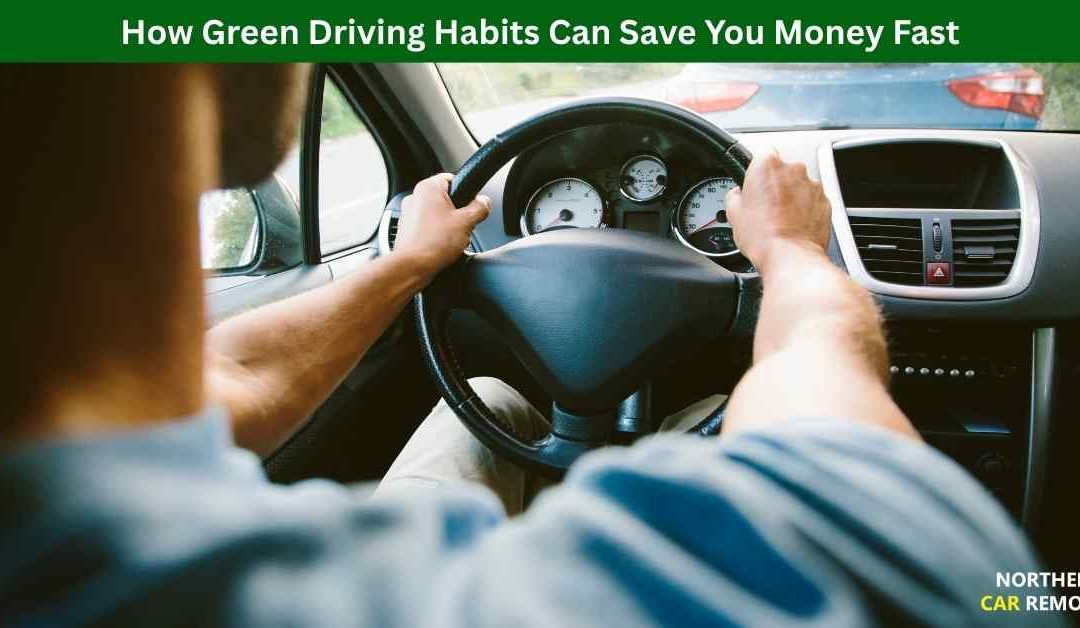Many people think eco-friendly driving is all about helping the planet — and while that’s true, it can also help your wallet in a big way. Making small changes to how you drive can reduce fuel costs, extend your car’s lifespan, and even cut down on repair bills. The best part? You don’t need a hybrid or electric vehicle to start driving greener — just a few smart habits.
Let’s take a closer look at how adopting green driving habits can save you money faster than you might think.
1. Smooth Driving Equals Lower Fuel Bills
Aggressive driving — like speeding, hard braking, and rapid acceleration — burns through fuel quicker than most people realise. When you drive smoothly, your car uses fuel more efficiently.
Try easing onto the accelerator, maintaining steady speeds, and braking gently whenever possible. Even reducing your highway speed by just 10 km/h can make a noticeable difference in fuel economy. Over time, that means fewer trips to the servo and more money staying in your pocket.
2. Keep Your Tyres Properly Inflated
Tyres that are even slightly underinflated make your engine work harder, which burns more fuel. They also wear out faster, meaning you’ll be replacing them sooner than necessary.
Check your tyre pressure at least once a month, especially before long drives. You’ll not only save on petrol but also improve your car’s handling and safety. A properly inflated tyre can improve fuel efficiency by up to 3%, which adds up quickly over a year of driving.
3. Lighten the Load
Carrying unnecessary weight can quietly drain your fuel economy. Extra gear in the boot, roof racks, or storage boxes all add drag and make your engine work harder.
If you’re not using that sports gear, camping equipment, or spare tools, take them out. The lighter your car, the less effort it needs to move — and that means instant fuel savings without changing your driving route or habits.
4. Keep Your Car Well-Maintained
A well-maintained vehicle is more fuel-efficient and lasts longer. Regular servicing keeps your engine clean and running smoothly, which means fewer breakdowns and better performance.
Simple maintenance tasks like changing the oil, replacing air filters, and checking spark plugs can prevent your car from burning extra fuel. It’s also smart to follow your manufacturer’s service schedule — skipping services might save a little upfront, but it often leads to costly repairs down the road.
5. Plan Smarter Trips
Every start-up burns fuel, so combining errands into one trip saves both time and petrol. Instead of several short drives, plan your routes to cover multiple stops in a single go.
Using apps or your car’s navigation system to avoid heavy traffic can also reduce idling time — another big fuel waster. Even small improvements in route planning can make a noticeable difference to your overall running costs.
6. Avoid Long Idling
Leaving your car running while waiting in a carpark or picking someone up might seem harmless, but it burns fuel for no reason. If you’re waiting more than a minute or two, it’s better to turn off the engine.
Modern engines don’t need long warm-ups either, even in cooler weather. Starting the engine and driving gently for the first few minutes is more efficient than idling in place.
7. Use Air Conditioning Wisely
Air conditioning can increase fuel consumption, especially at lower speeds. On short city trips, try opening the windows or using the fan setting instead. On highways, though, closed windows reduce drag and can be more fuel-efficient than driving with them open.
It’s about balance — using air conditioning when necessary but not letting it run full blast all the time.
8. Drive at Steady Speeds
Constantly changing speeds forces your car to burn extra fuel. On highways, using cruise control can help maintain a steady pace and improve fuel economy.
Even in city driving, anticipate traffic lights and flow instead of accelerating and braking repeatedly. Smooth driving saves fuel, reduces wear on brakes and tyres, and makes the ride more comfortable for everyone.
9. Don’t Ignore Warning Lights
A check engine light or other dashboard warning could mean your car isn’t running as efficiently as it should. Ignoring these signs often leads to lower fuel economy and bigger repair bills later.
If a light comes on, have it checked sooner rather than later. Fixing a small issue early — like a faulty oxygen sensor or dirty fuel injector — can restore performance and save you from wasting fuel unnecessarily.
10. Reconsider Short Trips
Cold engines use more fuel. So, if you’re just popping to the local shop or making several short trips, your car never reaches its most efficient operating temperature.
If possible, walk or cycle for short distances. It’s good for your health, good for the environment, and good for your wallet.
Adopting green driving habits isn’t just about being eco-friendly — it’s a practical way to cut your everyday motoring costs. From smoother driving to better maintenance, each small change adds up to meaningful savings. The bonus? You’ll reduce emissions, protect your vehicle, and enjoy a smoother, quieter drive — all while keeping more cash in your pocket.
If you are in Craigieburn, and looking to sell your car, this is the best way to find us.
1/26 Acacia St, Glenroy VIC 3046
0437 773 905


Recent Comments